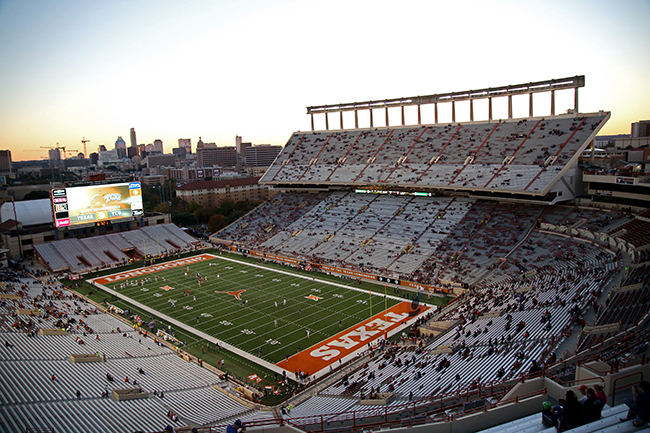The verdict is in: The University of Texas’s athletic department has been cleared of alleged academic dishonesty and, in some respects, applauded for its academic efforts.
On Jan. 13, a third-party investigation mandated by President Fenves early in his tenure delivered an encouraging review of the state of academics in the University’s athletics department. In light of the investigation’s favorable conclusion, the NCAA will not pursue any further investigation or proceedings of its own.
The athletic department can be satisfied beyond just official proof of innocence as many facets of its academics earned commendation. UT student-athletes cumulatively earned a GPA of 3.08 in the fall of 2015 and not one was on academic probation. The academic resources, such as facilities and tutors, available to student-athletes as well as the requirements expected of them were singled out for praise.
The report surely provides immediate relief in the face of a potentially damaging hit on the reputation of the University and its athletic department. But, over time, the most critical element of it will likely become its proposals for future action.
Athletic departments at the nation’s largest universities now wield immense power at their respective institutions. Their huge fan bases and ever-increasing financial power have granted them large independence from — and even influence over — the academic side of universities. This trend poses a real threat to the vaunted (and contentious) NCAA ideal of a “student-athlete.”
In the face of this rising power, universities are faced with a dilemma: how to balance lucrative on-field success with rigorous academic training expected of all students. Fortunately, the academic proposals of the type mentioned within the report establish a streamlined balance.
The proposals center upon structural rearrangement. The athletics department should consider, according to the report, establishing stronger connections between the largely in-house operations of the athletic department and the University’s traditional academic offices. Offering student-athletes an academic advisory outlet outside the athletics department, perhaps through the office of the provost, would lend much-needed integration. Also, ensuring student-athletes consult regularly with advisers in their respective colleges, rather than over-relying upon those within the athletic department, would integrate athletic and academic spheres.
If such changes — and others like them — are implemented, it would aid student-athlete education and, in so doing, contribute to the greater goal of ensuring that the academic goals of university life are not entirely eclipsed by sporting concerns. These types of changes are imperative to reestablishing the ultimate goal of being a student. With student-athletes spending dozens of hours a week on practice, traveling for events and posturing for potential professional careers, it is tempting to let slide the academic emphasis at the heart of college life. But the importance of an education for personal development and long-term financial success cannot be overstated.
Clark is an English senior from Dallas. He is an Associate Editor. Follow Clark on Twitter @DavisClarkDT.





















